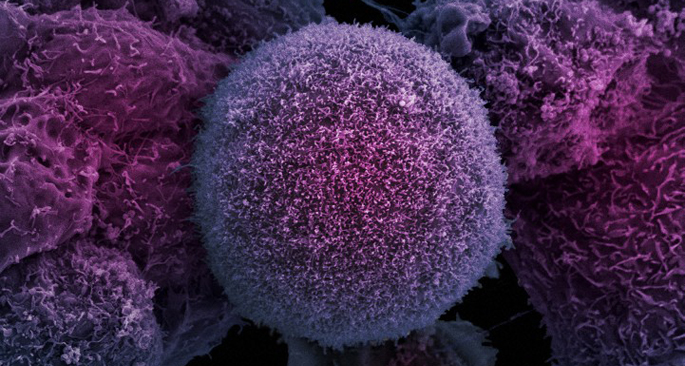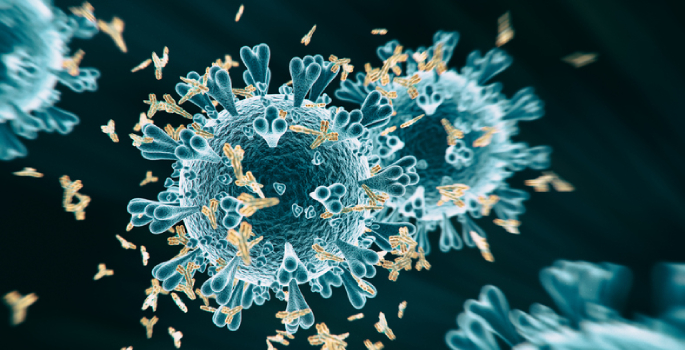Research
-

Probing statin-associated diseases with genetics
Vanderbilt researchers used genetics tools and biobanks with linked electronic health records to explore the associations between statins and noncardiovascular diseases. Read MoreJul 12, 2021
-

BME, CS grad students receive DoD science and engineering graduate fellowships
Two engineering doctoral students have received 2021 National Defense Science and Engineering Graduate Fellowships. Sponsored and funded by the U.S. Department of Defense, the NDSEG Fellowship is a highly competitive fellowship awarded to U.S. citizens and nationals who intend to pursue a doctoral degree in one of 15 supported disciplines. Fellowship selections are made by the... Read MoreJul 8, 2021
-

BME, CS grad students receive DoD science and engineering graduate fellowships
Two engineering doctoral students have received 2021 National Defense Science and Engineering Graduate Fellowships. Sponsored and funded by the U.S. Department of Defense, the NDSEG Fellowship is a highly competitive fellowship awarded to U.S. citizens and nationals who intend to pursue a doctoral degree in one of 15 supported disciplines. Fellowship selections are made by the... Read MoreJul 8, 2021
-

Nature’s “recycler” could reduce heart disease risk: study
Researchers at Vanderbilt University Medical Center have identified potential new targets for the prevention of atherosclerosis through the enhancement of autophagy, a natural process for recycling damaged cellular material. Read MoreJul 8, 2021
-

Study finds genetic risk factors for severe COVID-19 illness
A massive worldwide collaboration including researchers from Vanderbilt University Medical Center (VUMC) has identified several genetic factors associated with SARS-CoV-2 infection and severe COVID-19 illness. Read MoreJul 8, 2021
-

Delirium and mortality reexamined
A multicenter study of ICU patients found that in the hospital, delirium was associated with a nearly three-fold increase in risk of death the following day, but after discharge there was no association between delirium and mortality. Read MoreJul 8, 2021
-

Genetics of hydrocephalus
Fluid build-up in the brain — hydrocephalus — increases pressure and risk for brain damage; Vanderbilt researchers have now identified genes and signaling pathways associated with the condition. Read MoreJul 8, 2021
-

Vanderbilt graduate students address legislators to advocate for NSF funding
By Collier Roberts Members of the Vanderbilt community meet with a staff member from the Office of Rep. Steve Cohen (D-TN09). (Office of Federal Relations) Two graduate students from Vanderbilt’s School of Engineering and one from the School of Medicine recently addressed legislators in Washington, D.C., virtually, sharing stories about the important role funding from... Read MoreJun 30, 2021
-

Vanderbilt graduate students address legislators to advocate for NSF funding
Two graduate students from Vanderbilt’s School of Engineering and one from the School of Medicine Basic Sciences recently addressed legislators in Washington, D.C., virtually, sharing stories about the important role funding from the National Science Foundation has played in their research and training. Read MoreJun 30, 2021
-

$2.5 million NASA project will develop and test safety management for ‘air taxis’
Multi-university team tackles safety systems for autonomous eVTOLs Vanderbilt engineers are part of a NASA-funded, multi-institution effort to develop safety systems for a mode of transportation that doesn’t exist yet—small, commercial, autonomous planes that move people by air between locations in large, crowded cities. The task is a formidable one with machine learning at its... Read MoreJun 28, 2021
-

$2.5 million NASA project will develop and test safety management for ‘air taxis’
Multi-university team tackles safety systems for autonomous eVTOLs Vanderbilt engineers are part of a NASA-funded, multi-institution effort to develop safety systems for a mode of transportation that doesn’t exist yet—small, commercial, autonomous planes that move people by air between locations in large, crowded cities. The task is a formidable one with machine learning at its... Read MoreJun 28, 2021
-

Grad student adds drone imagery to toolbox for post-disaster recovery
A new online gallery of photos taken in the days, weeks and months following the March 2020 regional tornados is the work of an engineering graduate student who wants to make disaster recovery more equitable. Daniel Perrucci, a Ph.D. candidate in civil engineering, used bird’s eye imagery from drones as well as street-level photography... Read MoreJun 24, 2021
-

Treating metastatic prostate cancer
An indirect comparative effectiveness study using published data suggests that the targeted therapy olaparib should be re-evaluated for treating metastatic prostate cancer. Read MoreJun 22, 2021
-

Combination antibody therapies should retain effectiveness against emerging COVID-19 variants: study
Five monoclonal antibody “cocktails,” including one developed at Vanderbilt University Medical Center (VUMC), are protective in animal studies against several variant strains of COVID-19, according to a report this week in the journal Nature. Read MoreJun 22, 2021
-

Dexmedetomidine and delirium
The sedative dexmedetomidine, when administered during or after heart surgery, is associated with postoperative delirium and adverse outcomes. Read MoreJun 21, 2021
-

COVID-19 complication underdiagnosed
A mysterious inflammatory syndrome linked to COVID-19 infection and first identified in children also occurs in adults, Vanderbilt researchers report. Read MoreJun 17, 2021
-

Engineering grad student co-leads effort to repurpose approved medications
Global repositioning campaign targets needs of children and pregnant women Anup Challa, BE ’21, MS ’21, has been tapped to co-lead a team of researchers and patient advocates to identify areas across the world in need of health care for pregnant women and infants. He is the new chair of the Special Populations Coordinating Committee... Read MoreJun 14, 2021
-

Engineering grad student co-leads effort to repurpose approved medications
Global repositioning campaign targets needs of children and pregnant women Anup Challa, BE ’21, MS ’21, has been tapped to co-lead a team of researchers and patient advocates to identify areas across the world in need of health care for pregnant women and infants. He is the new chair of the Special Populations Coordinating Committee... Read MoreJun 14, 2021
-

Vanderbilt researcher finds that Supreme Court ban on race-conscious college admissions would restrict the pipeline of future leaders
Affirmative action admissions policies admit diverse students, who are then recruited to elite professions and C-suite leadership, according to new research by law and economics professor Joni Hersch. Read MoreJun 10, 2021
-

Gore tapped for prestigious lecture named for MRI co-inventor Lauterbur
The relatively brief history of medical MRI is riddled with failed predictions, according to University Professor John Gore, founding director of the Vanderbilt University Institute of Imaging Science. Bold statements about the optimal magnetic field and the limits of magnet strength were way off. In 1982 one researcher concluded MRI was useful for imaging the... Read MoreJun 1, 2021